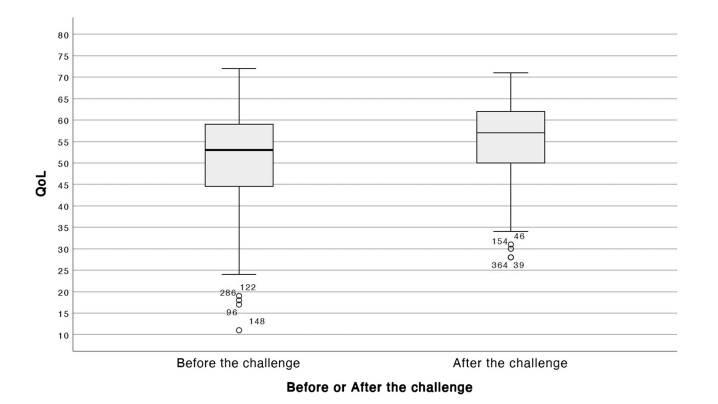Introduction
Many of us have heard that exercise has profound effects on our well-being. What many of us have not heard is that light exercise may have a direct, beneficial impact on our quality of life. The average American walks nearly 4 to 5 thousand steps or 1.5-2 miles per day according to the Mayo clinic. Considering that only 24% of Americans meet the physical activity guidelines, this average step count is far too low.
Like America, Saudi Arabia’s step count prior to 2020 was a measly 3800 steps per day, awarding them as a top contender in the world’s least physically active nation. To combat this, the kingdom started the “Walking Challenge”, an ingenious nationalistic activity that promoted each person to take 280,000 steps per month, or 9,205 steps per day. This step goal nearly tripled the reported step average.
A recent paper, published in Scientific Reports (2023), found that this increase in daily step count had a positive association with quality of life. This paper highlights the notion that a community project aimed at improving the livelihood of its citizens may benefit several nations across the world, such as America, where obesity rates heave steadily increased in the last decade.
The Evidence
The current study had 200 employees from a University in Saudi Arabia, with a majority of the participants being female (n=124) in which a questionnaire was filled out before (“Before Challenge”) and after the walking challenge period (“After Challenge”). The duration of the challenge period was 30 days, starting on the first of March and ending on the 31 of March. During this period, participants were asked to walk 280,000 steps, or 9,032 steps per day. After the challenge, participants were asked to fill out an “After Challenge” questionnaire and the health-related quality of life measurement (HQoL) was calculated. It was concluded that walking nearly 10,000 steps per day can significantly increase the subject’s quality of life.

The Impact
While this article has many shortcomings, including a small sample size and biased distribution of biological sex, it reinforces a positive behavior. The positive association between walking and quality of life further supports the notion that exercise has profound effects outside of physical health. Going to the gym is a hassle, especially for people who may have had a bad gym experience or feel intimidated in that environment. By starting your exercise journey with long-distance walks, your quality of life improves, your mood improves, and over-time, that anxiety about being “too out of shape” for the gym may dwindle away. Exercise is a well-known activity to decrease many health risks, including cardiovascular disease and diabetes. However, as obesity rates continue to climb, it seems as if the public feels disconnected from the importance of exercise. These disconnects can be attributed to a myriad of things, including poor time prioritization, poor availability of nutritious foods, and stress. The good news is that walking is a free, non-time intensive exercise program that can elevate your mood and possibly help motivate you to get into other types of physical activity, such as resistance training.
Highlights
- As a national vision, Saudi Arabia started the walking challenge, aiming to increase physical well-being by increasing daily step count.
- Participants in the challenge had reported significant improvements in their quality of life when compared to reports taken before the challenge.
- Walking more every day can be beneficial to your life and set you up for success.